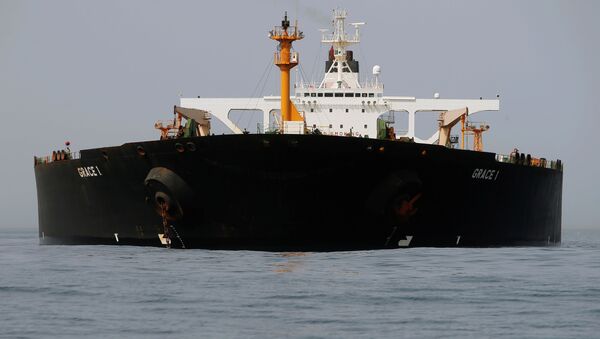China and a number of other states are receiving oil supplies from a greater number of Iranian tankers than was previously estimated, in defiance of the sanctions slapped on Iranian oil producers by the US, an investigative piece with respective gif-maps by the New York Times has suggested.
Having reviewed data from MarineTraffic and Refinitiv, two ship-tracking services, as well as satellite imagery from Planet Labs and analysis from shipping and energy experts, the edition has found that at least 12 Iranian tankers have loaded and shipped oil across the Indian Ocean to China, as well as all the way to the Eastern Mediterranean, possibly to Syria and Turkey, since 2 May, while countries that accept the cargo risk economic penalties at the hands of the US. At least six of those tankers were found to have delivered their cargo to ports in China – historically the top buyer of Iranian oil, which also happens to be in a severe ongoing trade war with Washington.
Meanwhile, only some of the aforementioned 12 tankers were previously known to have proceeded with Iranian oil deliveries, The NY Times specified.
“US sanctions have not stopped Iran from moving oil to the Mediterranean and Asia”, said Noam Raydan, an analyst at ClipperData, which tracks international crude shipments.
International law doesn’t in prohibit buying and hauling Iranian oil or related products, but those that have continued to do so since 8 May when Trump unilaterally pulled out from the JCPOA deal, are in Washington’s crosshairs.
The Trump administration’s oil sanctions, which mainly went into effect last November, are therefore unilateral, signifying a new low in Washington’s relations with the Islamic Republic. The administration initially granted eight governments permission to continue buying Iranian oil despite the sanctions, but withdrew those exemptions on 2 May 2019.
American officials have said that the sanctions are aimed at cutting off money to the Iranian government in order to prompt the country to make further concessions on its national nuclear and missile programmes, as well as transform its foreign and home policy.
In May, Tehran announced that it would partially suspend its obligations under the JCPOA (which stipulates that Iran guarantee the peaceful nature of its nuclear programme in exchange for the easing of economic limitations) giving the other agreement signatories 60 days to save the accord by facilitating oil exports and trade with Iran, which the US had vowed to bring to zero.
As the deadline expired, Iran said it would begin enriching uranium beyond the 3.67 percent level stipulated by the JCPOA and warned it would gradually give up its nuclear commitments, taking steps every 60 days. The Persian Gulf state has for now stepped up uranium enrichment to 4.5 percent, breaking the 3.67 percent limit allowed under the treaty, after accusing Germany, France, and the United Kingdom of insufficient effort to shield the country from US sanctions.
Last week, signatories to the JCPOA, including EU countries, China, and Russia, met in Vienna for an emergency gathering during which the Chinese delegation's head reiterated Beijing’s commitment to the deal and denounced the US’ harsh policies vis-à-vis Iran.


